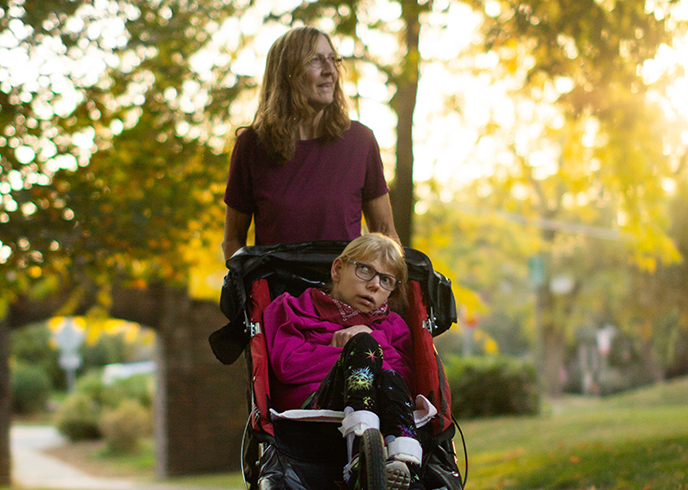
Community care orgs ‘shored up’ with ARPA funds, but still fighting for future

Listen
(Runtime 1:23)
Read
Community care providers that serve people with disabilities across Idaho began receiving emergency funding in November, that they had originally expected in July.
For some, those transitional funds were the difference between closure or continued service to disabled community members.
Kelly Head-Halladay is the director of operations at Westcare Management, which oversees several community providers, including Milestone Decisions in Moscow.
“It shored up so many of our providers and their abilities to just continue, [and] also do big things for their staff,” she said. “[It is] very much appreciated. But we all worked hard to get them to that point.”
That funding, which Head-Halladay said totals roughly $72 million, comes from the American Rescue Plan Act and is considered a transitional fund.
Head-Halladay said although those temporary ARPA funds will help support care in the next year, agencies like hers aren’t out of the woods yet.
The state has yet to establish long-term funding rates. The state also delayed a cost survey of home and community-based services because some pandemic-era funding and costs wouldn’t have accurately represented providers’ needs. That means without intervention, providers wouldn’t see an updated funding schedule until the next cost survey in five years.
Head-Halladay says community providers don’t have that long. Their next step is working with Medicaid administrators, the Idaho Department of Health and Welfare and state legislators to ensure adequate funding based on inflation.
“Medicaid is tentative to ask for what they know that the providers need — to bring that to the legislature, especially as this is a new legislature,” Head-Halladay said. “There’s not a lot of nuanced understanding about Medicaid in the legislature, it all becomes one big conversation. And we really need to work with our legislature to really define that when we’re talking about our Medicaid, we’re talking about people with disabilities, elderly folks, people in long term care.”
That can be a challenge, Head-Halladay says, but she believes it’s necessary, especially when many providers have yet to rehire all the positions they lost due to low wages, and many agencies only recently raised their wages to roughly $15 an hour.
“As an industry, we’re looking to really rebuild,” she said. “We need the department to understand that they’re not done. There’s a level of courage that they have to be able to have, to ask for what they know that we need.”
Idaho’s Legislative session begins Jan. 9.
This report is made possible by the Lewis-Clark Valley Healthcare Foundation in partnership with Northwest Public Broadcasting, the Lewiston Tribune and the Moscow-Pullman Daily News.















